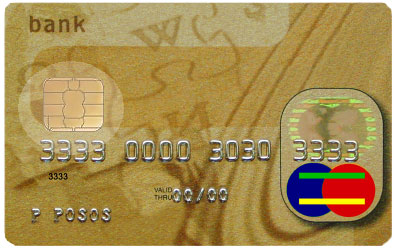Home | Solutions Blog | Security
Posts tagged "Security"
Why fight parking-lot-road-rage, UFC-sanctioned-psycho-shoppers and 12 a.m.-midnight-start-times on Black Friday when you can shop from the comfort of your laptop or iPad while sipping eggnog on the couch (or more likely, from your office desk)? I’m talking about Cyber Monday, of course – the day that online merchants heavily discount their products and generally give free shipping as well. By shopping online, you get most of the same deals and discounts (some of them better) without the breakneck competition common in stores the day after Thanksgiving.
Online shopping during the holidays is a convenient, green, inexpensive way to celebrate the season with less stress. In fact, it’s such an efficient way to buy gifts that cyber shoppers will spend close to $2 Billion this coming Monday. If you are one of them, take a few steps to add peace-of-mind to your peaceful holidays.
Posted in Identity Theft Prevention by Identity Theft Speaker John Sileo.
Tags: "Identity Theft, Black Friday, Cyber Crime, Cyber Monday, Cyber Theft, Internet, Online, Online Safety, Online Shopping, Security, Sileo
Can social media and privacy mix? The short answer is no. Social media is social by nature (meaning others are involved) and is media based (meaning that the materials are designed to be easily communicated and shared). When something is essentially named Share with Others, privacy is an afterthought. But that doesn’t mean it should be completely non-existant, or at least transparent – so that we know what we are sharing with others.
The FTC (Federal Trade Commission) is about to hold Facebook to stronger safeguards regarding user privacy, but in the end, it won’t matter very much because they are leaving Facebook with lots of wiggle room.
Rumor has it that Facebook will soon have to acquire users’ consent before making changes to privacy policies that affect current user data. That is a total contrast to what they’ve done in the past, which is to rewrite their privacy policies to be less protective without so much as giving users a whiff of the changes to their privacy.
Posted in Identity Theft Prevention by Identity Theft Speaker John Sileo.
Tags: Facebook, FTC, Privacy, safety, Security, Sileo
Oh what your mobile phone carrier knows and tracks about you! A one-page document from the Justice Department‘s cybercrime division shows how cell phone companies record and retain your call and surfing activity (calls, text messages, web surfing and approximate location). Here’s a summary of how each company retains your information (full details in the image below):
- Verizon Wireless – rolling one-year records of cell tower usage & what phone accessed what web site
- AT&T / Cingular – ongoing records of cell tower usage since July of 2008
- T-Mobile USA – doesn’t keep any data on Web browsing activity
- Sprint Nextel’s Virgin Mobile – 3 month record of text content
- Other than Virgin Mobile and Verizon, none of the carriers keep texts but they keep records of who visited a particular web site.
- Verizon keeps some information for up to a year that can be used to ascertain if a particular phone visited a particular Web site
Posted in Fraud Detection & Prevention, Identity Theft Prevention by Identity Theft Speaker John Sileo.
Tags: "Identity Theft, AT&T, Cell, Identity Expert, John Sileo, Justice Department, Mobile, Privacy, Privacy Expert, Security, Security Expert, Sprint, Texts, Tmobile, Tracking, Verizon, Wireless
Information is the currency and lifeblood of the modern economy and, unlike the industrial revolution, data doesn’t shut down at dinnertime. As a result, the trend is towards hyper-mobile computing – smartphones and tablets – that connect us to the Internet and a limitless transfusion of information 24-7. It is an addiction that employers encourage because it inevitably means that we are working after hours (scanning emails in bed rather than catching up with our spouse).
In the work we do to change the culture of privacy inside of organizations, we have discovered a dilemma: iPads are not as secure as other forms of computing and are leaking significant amounts of organizational data to corporate spies, data thieves and even competing economies (China, for example, which would dearly love to pirate the recipe for your secret sauce). Do corporations, then, sacrifice security for the sake of efficiency, privacy for the powerful touch screens that offer a jugular of sensitive information?
Posted in Cyber Data Security, Fraud Detection & Prevention, Identity Theft Prevention by Identity Theft Speaker John Sileo.
Tags: data, Expert, ipad, iPad Security, iPad Security Settings, IT, John Sileo, Privacy, Protect my ipad, Protection, safety, Security, Sileo, Virus
The typical US consumer still swipes their card, credit or debit, with those same old black magnetic stripes. And, we hold our breath and hope they work, and don’t lead to erroneous (fraudulent) charges we have to defend. The rest of the world has switched to Smart cards, according to Peter Svensson, The Associated Press, in The Denver Post. “The problem with that black magnetic stripe on the back of your card is that it’s about as secure as writing your account information on a post-card”.
Svensson comments “Smart-cards (chip-based cards) can’t be copied, which greatly reduces the potential for fraud. Smart cards with built-in chips are the equivalent of a safe: They can hide information so it can be unlocked only with the right key”.
Posted in Cyber Data Security, Fraud Detection & Prevention, Identity Theft Prevention by Identity Theft Speaker John Sileo.
Tags: Chip, Credit Card, Credit Cards, Financial, Keynote Speaker, Security, Sileo, Smart Card, Smart Cards, Technology
- Only Friend people you know.
- Create a good password and use it only for Facebook.
- Don’t share your password.
- Change your password on a regular basis.
- Share your personal information only with people and companies that need it.
- Log into Facebook only ONCE each session. If it looks like Facebook is asking you to log in a second time, skip the links and directly type www.facebook.com into your browser address bar.
- Use a one-time password when using someone else’s computer.
- Log out of Facebook after using someone else’s computer.
- Use secure browsing whenever possible.
- Only download Apps from sites you trust.
- Keep your anti-virus software updated.
- Keep your browser and other applications up to date.
- Don’t paste script (code) in your browser address bar.
- Use browser add-ons like Web of Trust and Firefox’s NoScript to keep your account from being hijacked.
Posted in Cyber Data Security, Online Privacy by Identity Theft Speaker John Sileo.
Tags: data, Expert, Facebook, Fraud, Identity Theft Prevention, Privacy, Profile, safety, Security, Sileo, Tips
If you hacked into Rupert Murdoch’s voicemail, you would hear the message I just left him:
Thank you , Mr. Murdoch, I owe you one. I’ve spent the past five years trying to convince the world of something you managed to do with one simple scandal. I’m sorry that you will probably lose your reputation and much of your company and wealth because of it (not to mention your self-respect), but the world will be a better place for it. Why? Not just because our phone is ringing non-stop with companies and individuals that want to protect their private information.
Posted in Fraud Detection & Prevention, Identity Theft Prevention by Identity Theft Speaker John Sileo.
Tags: Email, Expert, Hacking, James Murdoch, John Sileo, news, News of the World, Phone, Privacy, Rupert Murdoch, Security, Voicemail
 I just finished an interview with Esquire magazine about the security of webmail applications like Gmail, Windows Live Hotmail and YahooMail. Rebecca Joy, who interviewed me on behalf of Esquire, wanted to know in the wake of the Rupert Murdoch phone-hacking scandal, how secure our photos and messages are when we choose to use free webmail programs.
I just finished an interview with Esquire magazine about the security of webmail applications like Gmail, Windows Live Hotmail and YahooMail. Rebecca Joy, who interviewed me on behalf of Esquire, wanted to know in the wake of the Rupert Murdoch phone-hacking scandal, how secure our photos and messages are when we choose to use free webmail programs.
The simple answer? Not very secure. Just ask Vanessa Hudgens (nude photos), Sarah Palin (complete takeover of her email account) and the scores of celebrities and power figures who have been victimized by email hacking.
Think of using webmail (or any web-based software, including Facebook, Twitter, Google Docs, etc.) as checking into a hotel room. Unlike a house, where you have tighter control over your possessions, the same is not true of a hotel. While you definitely own the items you bring into a hotel room (laptop, smartphone, wallet, passport, client files), you don’t have nearly as much control as to how they are accessed (maids, managers, social engineers who know how to gain access to your room). In short, by using webmail to communicate, you are exchanging convenience for control.
Posted in Identity Theft Prevention by Identity Theft Speaker John Sileo.
Tags: Email, Gmail, Hacking, Hotmail, John Sileo, safety, Security, Sileo, Webmail, Windows Live, Yahoo!
In the first part of this article series, we discussed why it is so important to protect your business data, including the first two steps in the protection process. Once you have resolved the underlying human issues behind data theft, the remaining five steps will help you begin protecting the technological weaknesses common to many businesses.
- Start with the humans.
- Immunize against social engineering.
Posted in Burning Questions (Video), Cyber Data Security, Fraud Detection & Prevention, Identity Theft Prevention, Video Tips by Identity Theft Speaker John Sileo.
Tags: "Data Privacy", Business Security, data security, Detection Fraud, Engineering Social, Fraud, Fraud Detection, Fraud Expert, Fraud Speaker, Fraud Training, identity theft expert, Identity Theft Prevention, information, John Sileo, Keynote, Keynote Speaker, Part 2, Part II, Prevention, Privacy, professional speaker, Protection, Security, social engineering, social engineering expert, Speaker, Technology, Training Fraud






 I just finished an interview with Esquire magazine about the security of webmail applications like Gmail, Windows Live Hotmail and YahooMail. Rebecca Joy, who interviewed me on behalf of Esquire, wanted to know in the wake of the Rupert Murdoch phone-hacking scandal, how secure our photos and messages are when we choose to use free webmail programs.
I just finished an interview with Esquire magazine about the security of webmail applications like Gmail, Windows Live Hotmail and YahooMail. Rebecca Joy, who interviewed me on behalf of Esquire, wanted to know in the wake of the Rupert Murdoch phone-hacking scandal, how secure our photos and messages are when we choose to use free webmail programs.







